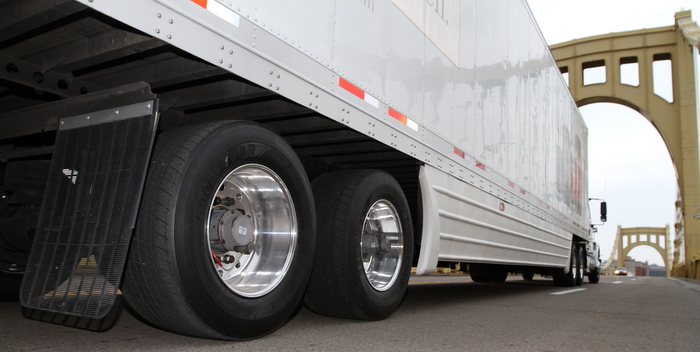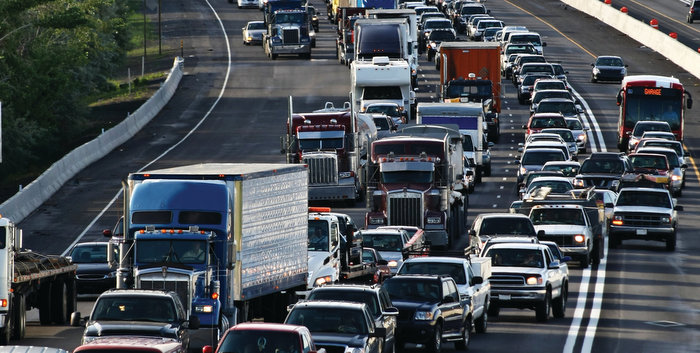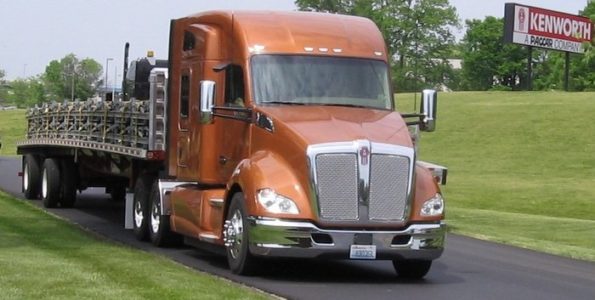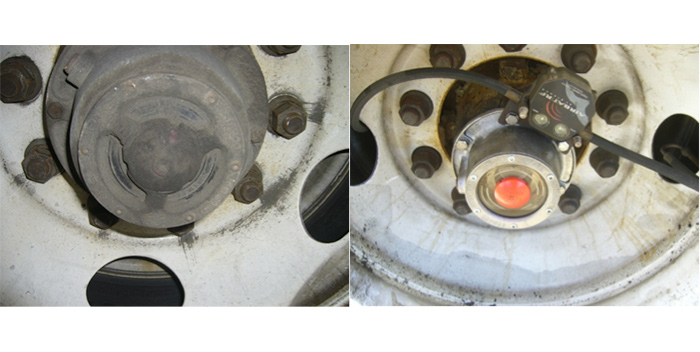Why it’s important to test new engine oils
Last month, I mentioned that the North American Council for Fleet Efficiency (NACFE) recommended that fleets switch to the API FA-4 low viscosity lube oils immediately to save fuel and decrease (GHG) emissions. As stated by the report, viscosity is defined as a measure of a fluid’s internal resistance to flow. In a truck’s engine,
Last month, I mentioned that the North American Council for Fleet Efficiency (NACFE) recommended that fleets switch to the API FA-4 low viscosity lube oils immediately to save fuel and decrease (GHG) emissions. As stated by the report, viscosity is defined as a measure of a fluid’s internal resistance to flow. In a truck’s engine, mechanical losses from pumping and friction consume approximately 16% of the total energy input to a vehicle. A lower-viscosity aims oil to reduce those engine mechanical losses and save fuel.
Tire costs are down, but not my tire CPM?
In a recent meeting I was a part of, a fleet owner began by saying that the cost of rubber is down, oil is down, and his profits are down; so why aren’t tire costs down? He has a point—some fair non-bidding negotiations brought adjusted tire costs down. So why are tire costs-per-mile not coming down?

Where is our national energy policy?
Our lack of a technically based national energy policy has, and will continue to, cost us billions. You and I have financed such ridiculous schemes as corn-based ethanol and solar-powered home devices, and the cash outflow shows no sign of abating. Related Articles – Beyond standard TPMS: The crucial role of customizable tire health alerts

Who is controlling the checkbook?
A recent fleet cost reduction meeting, requested by the president, called for our department heads to come up with three cost saving initiatives outside of the normal box. The thinking was to fire up and measure the results from each idea going forward. The real intent, in my opinion, was to see what people have

Driving to maximize fuel economy
While working at Shell Oil Co.’s Wood River Research facilities, my engineering team was tasked with determining relationships between gasoline composition and drivability and fuel economy. This would be much easier today due to the impressive electronic devices available, but in 1969, we had to do things the hard way. Related Articles – Castrol, Safety-Kleen

Other Posts
The Internet of Things, explained
The “Internet of Things” (IoT), simply explained, is a comprehensive way to manage data for greater productivity. It’s has been called the next mega-trend, and at its core are embedded software sensors placed in vehicles, machine tools, streetlights, and wind turbines—to name just a few devices in an ever-increasing list. Related Articles – ServiceTitan, Thumbtack integrate

Buying pre-owned trucks? No need to kick the tires
Purchasing a pre-owned truck should not be a contest. Buyers should have confidence in the equipment they are purchasing—with no surprises down the road. Related Articles – Mercedes-Benz eActros 600 completes winter trials – Inside the most secret building at Volvo Trucks – PrePass comes to four new states, adds 116 sites Inspections Some truck

Evolving technology and vehicle insurance
Companies that insure motor carriers, trucks and drivers are not all the same. Some sell through independent agents, others through their own sales staffs. Some specialize in commercial truck insurance, while others sell it as one of a secondary line of coverage. Some insurance companies specialize in specific niches within the motor-carrier industry, such as

Balancing act: Sleepers keep drivers comfortable while the fleet stays efficient
Driver retention is one of the biggest issues facing fleets today. There simply aren’t enough drivers to go around, and it’s impacting the bottom line. With that being the case, fleets have been going out of their way to provide drivers with all the creature comforts they require, in order to ensure that they stay


